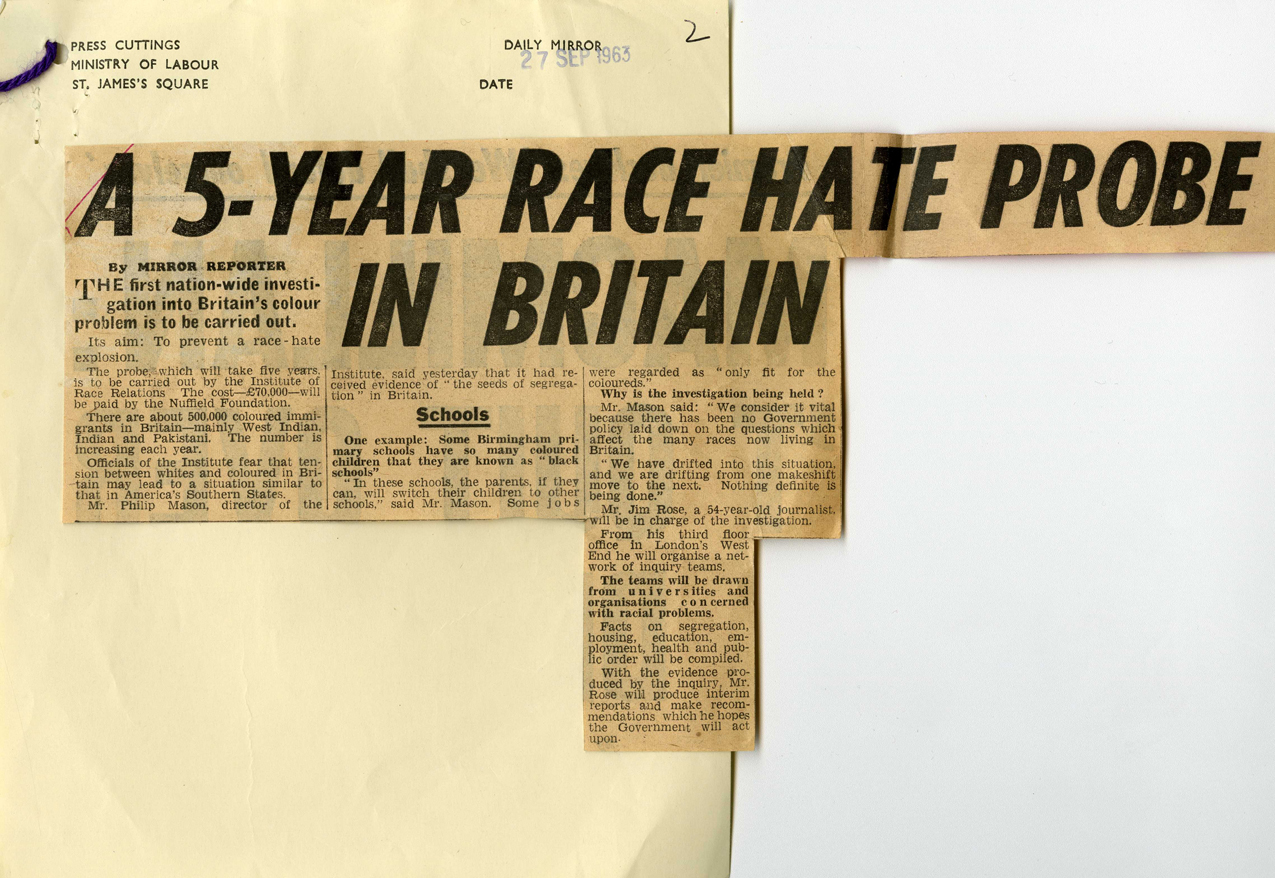
Article from the Daily Mirror about a survey on race relations in Britain to be carried out by the Institute of Race Relations, 27th September 1963 (LAB 8/2875). Mirrorpix ©
Transcript
5 YEAR RACE HATE PROBE IN BRITAIN
By MIRROR REPORTER
The first nation-wide investigation into Britain’s colour problem is to be carried out.
Its aim: To prevent a race-hate explosion.
The probe which will take five years, is to be carried out by the Institute of Race Relations. The cost- £70,000- will be paid by the Nuffield Foundation.
There are about 500,000 coloured immigrants in Britain- mainly West Indian, Indian and Pakistani. The number is increasing each year.
Officials of the Institute fear that tension between whites and coloured in Britain may lead to a situation similar to that in America’s Southern States.
Mr. Philip Mason, director of the Institute said yesterday that it had received evidence of “the seeds of segregation” in Britain.
Schools
One example: Some Birmingham primary schools have so many coloured children that they are known as “black schools”.
“In these schools, the parents, if they can, will switch their children to other schools,” said Mr. Mason. Some jobs were regarded as “only fit for the coloureds.”
Why is the investigation being held?
Mr. Mason said: “We consider it vital because there has been no Government policy laid down on the questions which affect the many races now living in Britain.”
“We have drifted into this situation and we are drifting from one makeshift move to the next. Nothing definite is being done.
Mr. Jim Rose, a 54-year-old journalist will be in charge of the investigation.
From his third floor office in London’s West End he will organise a network of inquiry teams.
The teams will be drawn from universities and organisations concerned with racial problems.
Facts on segregation, housing, education, employment, health and public order will be compiled.
With the evidence produced by the inquiry, Mr. Rose will produce interim reports and make recommendations which he hopes the Government will act upon.
